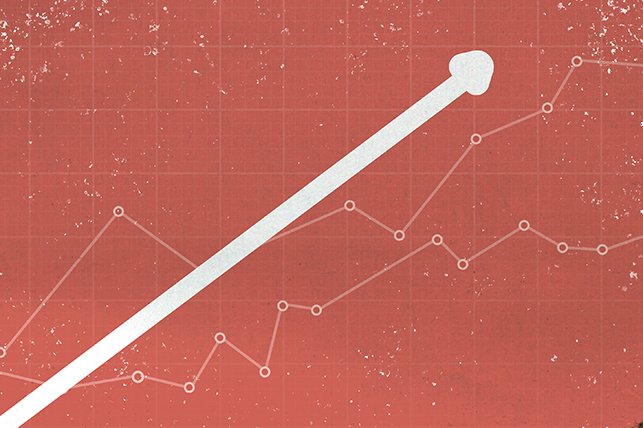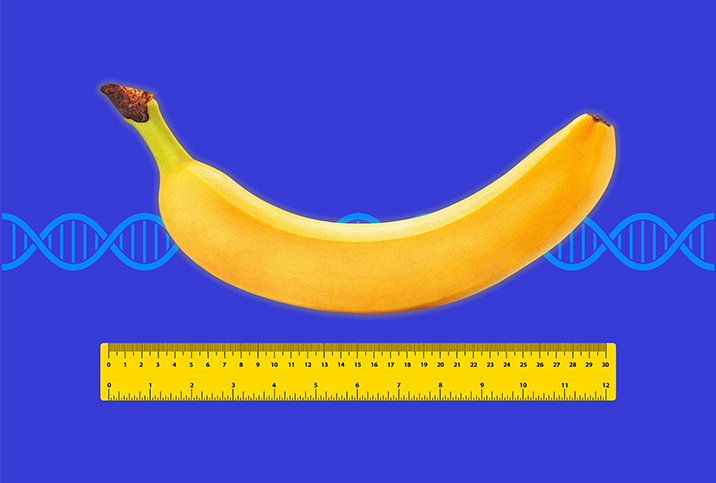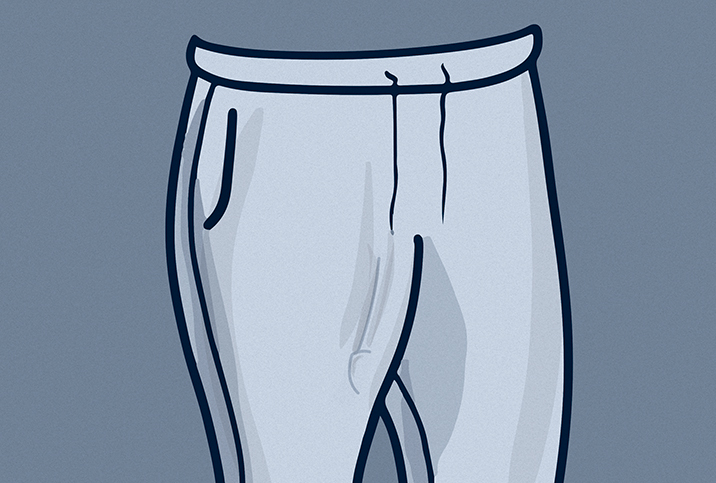The Average Penis Size Has Increased Over the Past 30 Years

People have long been fixated on penis size. Prehistoric cave art around the world, with some examples dating back tens of thousands of years, depict men with exaggeratedly large penises.
Our ancient ancestors might be excited to learn that penis length has skyrocketed in the past 30 years, increasing by almost 25 percent in some places in the world—or just over an inch—according to a new meta-analysis of 79 years' worth of men's health data.
But their excitement might be unfounded, according to Michael Eisenberg, M.D., a professor of urology at Stanford University in Palo Alto, California, and one of the authors of the study, which was published in February in the World Journal of Men's Health.
"Any rapid change in genital development is concerning," Eisenberg warned.
About the research
For the study, Eisenberg and an international team of researchers gathered data on 55,761 adult men around the world, pulling from 75 studies conducted between 1942 and 2021.
One of the team's discoveries is that overall average erection length stretched from 4.8 inches to 6 inches during this brief 29-year window, according to a Stanford Medicine blog.
The findings surprised the researchers, who cited seemingly contradictory trends in male health, such as declining testosterone levels and sperm counts.
Potential explanations for the findings
A number of factors may be behind the increase in penis size, according to Eisenberg. He suggested, for example, that endocrine-disrupting chemicals such as pesticides and phthalates might be interacting with our hormonal systems. Chemical exposure has also been pointed to as a reason children are beginning puberty earlier, he said.
"Studies suggest that earlier puberty is associated with longer penile length. Thus, pubertal timing could explain the finding," Eisenberg explained.
Christopher C. Kyle, M.D., M.P.H., a urologist at the Oregon Urology Institute who was not involved in the research, confirmed this possibility.
"There might be something going on with developing boys hormonally," Kyle said. "We know considerable growth of the penis occurs during puberty, and it's related to a number of hormonal factors."
Study limitations
Eisenberg and Kyle both noted a few imperfections in the study.
"We were limited to the available studies," Eisenberg explained. "Some populations contributed more and less than others, and there were fewer studies during earlier years."
"The study is a meta-analysis, where researchers took a lot of studies and compiled the data," Kyle added. "An ideal study would measure the same demographics in the same country using the same measuring device every year for 50 years. Then you could control outside variables."
Takeaways
In terms of aspects like fertility and overall health, a larger penis shouldn't cause any problems—or perks.
"The overall changes observed would be less likely to cause any harm or benefit," Eisenberg explained.
However, he also noted that this research suggests there's something happening in the background that is not a positive sign of things to come.
"There's not any correlation between fertility and penis size," Kyle noted. "Our concern would be, is this reflective of something else? So, for example, if there's something going on in males hormonally and one of the byproducts of that is a larger penis."
"It is something that should continue to be studied," Eisenberg said. "I think we need to understand it better and determine if genital development is continuing to change."
Eisenberg, in an interview with the Stanford blog, said the next step is to look for similar changes in other age groups. Measuring penis length in a systematic fashion, like we do with height and weight, would be key. It could uncover changes in human development early.
"If there's granular data on lifestyle factors or environmental exposures, we could try to understand why this may be happening," Eisenberg told the blog. "Lastly, I think it's important to ask if there are similar changes occurring to women's reproductive organs."


















